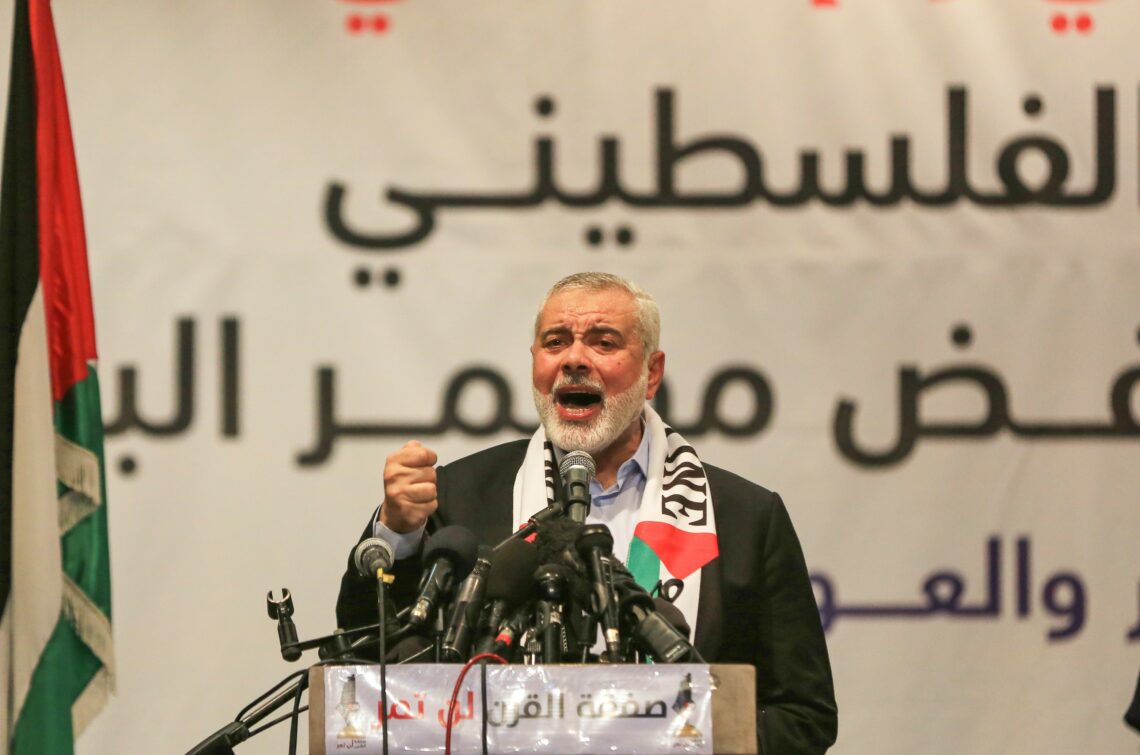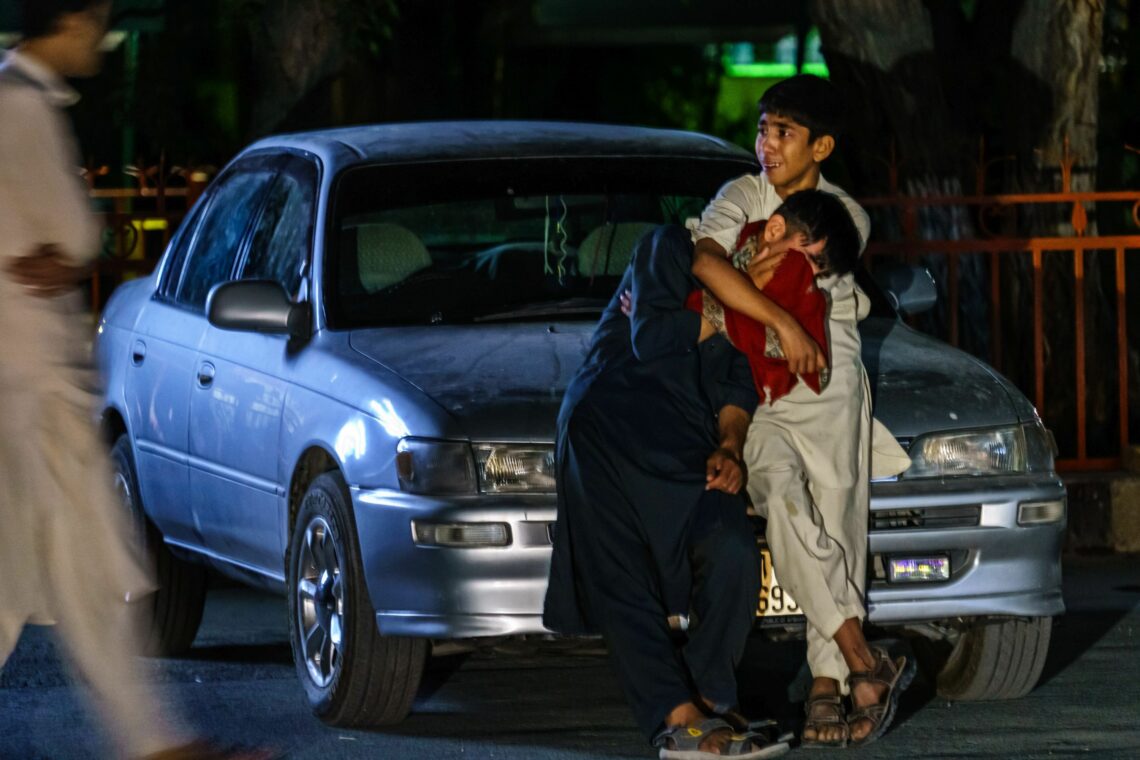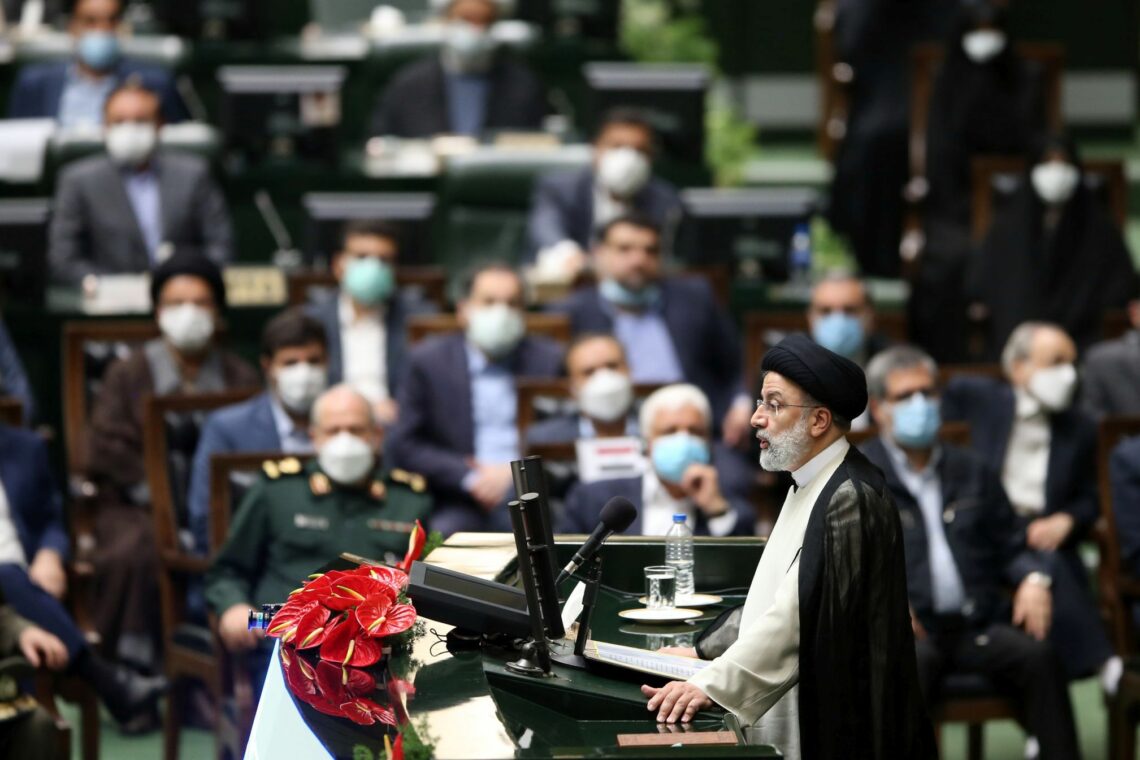After Afghanistan: The impact on the Middle East
The rapid Taliban takeover of Afghanistan has emboldened other extremist Islamic organizations in the region. While some of these groups have hardened their stances and intensified their rhetoric, the real question is if all of this will translate into violence.

In a nutshell
- The Taliban victory has emboldened Islamic extremists
- Iran wants to try to cooperate with the Taliban
- Israel worries its enemies’ euphoria could translate into action
The Taliban’s swift takeover of Afghanistan while the United States was scrambling to complete a messy withdrawal was greeted by cheers from many in the Middle East, including militant Islamic organizations and ordinary Palestinians. The fallout will affect Israel and the many warring factions in the region, both Sunni and Shia.
Just as it did under the first iteration of the Taliban regime, the faraway, landlocked, underdeveloped country of Afghanistan could again become a global threat in the hands of a murderous terrorist organization. Taliban means “students” in Pashto, and when the group was established after the mujahideen defeated the Soviet Union, its members were young Pashtuns – ethnic Afghans – educated in some of the most extremist religious schools of Pakistan and Afghanistan. They had also fought the Russians and eventually emerged victorious from the ensuing civil war. In 1996 they installed a hardline Islamic regime and gave refuge to al-Qaeda militants, who established a base where they planned the terror attacks of September 11, 2001.
The U.S. response was swift, and the Taliban were driven out of power by American troops that year. With their triumphant return 20 years later, the organization has regained control of the country and can now boast of having defeated the Americans. Their success has reinvigorated jihadi spirit around the world.
Iran has ordered its militias to harass American troops stationed in Iraq and Syria to hasten their departure.
There was no official reaction from Israel to the events in Afghanistan, though the government was keenly aware of the boost they gave its many enemies. Those who did speak out – legislators, former ministers and political commentators – stressed Israel’s determination to rely on its strength, even alone if necessary. They also emphasized that coordination with the U.S. would remain a cornerstone policy.
In the Middle East, psychology and images are of enormous political importance and often trump reality. Many Muslims in the region see America’s ouster by Islamic militants as offering new hope for their ambitions. They now believe that with patience, it is possible to defeat the U.S. and Israel, which they consider the sworn enemies of Islam. Iran, hoping that Washington will withdraw its forces from Iraq – and perhaps even from Syria – has ordered its militias to harass American troops stationed in these countries to hasten their departure.
Palestinian reaction
Hamas and Islamic Jihad were ecstatic at the news. Hamas leaders were the first to congratulate the Taliban. In a phone call in August with Taliban leader Abdul Ghani Baradar, Hamas political bureau chief Ismail Haniyeh congratulated the Afghan people for the end of the American “occupation,” saying it was “a prelude to the demise of all occupation forces, foremost of which is the Israeli occupation of Palestine.”
Mr. Haniyeh’s deputy, Moussa Abu Marzook, stressed that the Taliban had not been “deceived by bright headlines about ‘democracy’ and ‘elections.’” His words were a stark reminder of the unbridgeable gap between Western democracy and sharia rule, to which Hamas, the Taliban and jihadi organizations aspire.
ISIS continues to conduct terror attacks.
Some Palestinian media have been keen to emphasize links between Hamas and the Taliban. Recently, they published photos of a meeting held in Doha, Qatar, shortly after the May confrontation between Hamas and Israel. At the meeting were Mr. Haniyeh and Saleh al-Arouri, another Hamas leader, as well as Mr. Baradar, who was head of the Taliban political bureau at the time. Mr. Baradar praised Hamas’s “steadfast opposition to the Zionist enemy,” which led it to what he called “victory” in that confrontation. Mr. Baradar is now first deputy prime minister in the Taliban government.
In an August speech at the Al-Aqsa Mosque in Jerusalem, a revered Islamic scholar called on the Taliban to immediately establish a caliphate and stated that Pakistan and the rest of the Muslim world in central Asia would immediately join them and march on Jerusalem to “free” the mosque.
The Palestinian Authority, vying for American assistance, was more circumspect and merely issued a short communique to the effect that Israel should draw conclusions from the withdrawal and understand that external defenders cannot bring security and peace to a country.
ISIS and al-Qaeda
From the enthusiasm displayed by various Sunni organizations, it is clear that they will try to use the Taliban’s success to promote their own agendas. What is less obvious is whether Afghanistan’s rulers will renew their alliance with al-Qaeda. For now, they are busy adjusting to their new situation – but the issue will come to the fore eventually.
Islamic State (also known as ISIS or Daesh) is openly challenging the Taliban. It launched the deadly attack on Kabul International Airport at the end of August and is responsible for several other acts of terrorism in the country. It has demonstrated that it will accept no compromise with the West, whatever the cost. It sees the Taliban as having turned its back on its values by entering negotiations with the U.S. and trying to present a positive image to the international community.

Though greatly diminished, ISIS is still striving to establish a global caliphate and continues to conduct terror attacks in Iraq, Syria, northern Sinai and the Sahel, recruiting supporters and encouraging them to commit similar atrocities in its name wherever they can. Their strongest base, however, is in the Middle East – the Taliban’s backyard. It is worth noting that so far, ISIS has refrained from targeting Israel.
Iran
Iran has not hidden its satisfaction at the inglorious American withdrawal. It shares a 900-kilometer border with Afghanistan and considered the U.S. troops stationed in the country a threat. Its relationship with the Taliban has ranged from animosity to cooperation. During the first period of Taliban rule in the 1990s, Afghanistan and Iran barely avoided open warfare after the Afghan regime persecuted Persian-speaking Shia Hazaras and executed eleven Iranian diplomats. When the Americans invaded, Tehran offered the U.S. its assistance. Relations between the Iranian regime and the Taliban improved in the years after the latter were ousted from power.
Today, Iran wants to keep its eastern border quiet, and therefore is willing to keep its relationship with the Taliban amicable. Although the government in Iran is Shia and the Taliban are Sunni, Tehran is not primarily focused on religious conflicts. Its main strategic goals are strengthening its grip on Middle Eastern countries, developing nuclear weapons and confronting the U.S. and Israel. It is ready to boost cooperation with militant Sunni organizations such as Hamas, Islamic Jihad, al-Qaeda and even the Taliban. Over the last decade, Tehran had developed covert ties with the Taliban as it tried to increase exports to Afghanistan in the face of U.S. sanctions. It also financed the first part of a rail link between the two countries, which was completed in 2020.

Then there is the water issue. Here, Afghanistan has the upper hand. To meet the country’s growing need for the resource, the Americans built several dams on the powerful Helmand River. These dams have the potential to threaten water supply downriver, to eastern Iran. As it has done in the past, Kabul could stem the river’s flow even despite a 1973 water treaty between the two countries that was renegotiated in February 2021. However, the Taliban are loath to renew their confrontation with Iran while they are still trying to rebuild their regime and fight ISIS. Besides, they have no interest in weakening Iran in its confrontations with the U.S. and Israel.
Qatar and Turkey
Qatar and Turkey, both of which are supporters of the Muslim Brotherhood and have extensive ties to jihadi organizations, were quick to offer the Taliban help in establishing their rule. However, both are also American allies, and therefore in a more ambiguous position.
Qatar established close relations with the Taliban long ago and sponsored the negotiations in Doha between the Trump administration and the Taliban to facilitate the withdrawal of American troops. When the U.S. pullout got messy, Qatar allowed the Americans to bring evacuees to Doha.
Expect the U.S. to communicate with the Taliban through Qatar and Turkey.
Qatar was the first state to offer financial assistance to the Taliban. It was also instrumental in promoting good relations between Ankara and the new regime, helping the sides find a mutually satisfactory solution to Turkey’s proposal to defend and operate Kabul Airport. NATO had originally agreed to the plan, but the Taliban were unwilling to accept it. Qatar helped broker a solution in which it and Turkey were allowed to help secure the airport. At least for now, expect the U.S. to communicate with the Taliban through Qatar and Turkey.
Scenarios
The “triumph of Islam over the infidels” in Afghanistan has strengthened Israel’s enemies and intensified cooperation between them. This was abundantly clear at the swearing-in ceremony of Iran’s new president, Ebrahim Raisi, just days before the Taliban entered Kabul. Mr. Haniyeh, the Hamas leader, as well as Secretary General of Islamic Jihad Ziyad al-Nakhalah and Hezbollah’s deputy leader Naim Qassem were all seated near Iran’s new leader.
To what degree will the Taliban’s victory embolden other Islamic organizations? There will certainly be less talk of compromise. Hamas is already toughening its stance on a prisoner swap, demanding that thousands of its militants be set free in exchange for returning two civilians who crossed into Gaza by mistake and the remains of two Israeli soldiers.
Israel wonders whether its enemies’ current euphoria will translate into action. Will there be greater cooperation between Iran and Hezbollah on one hand, and Hamas and Islamic Jihad on the other? Iran is already supplying its Lebanese proxy, Hezbollah, with missiles and advanced technology, and is allegedly helping it produce lethal drones. It is also aiding Hamas, whose influence in territories controlled by the Palestinian Authority is increasing.
In view of the Afghan economy’s dire state, the Taliban are unlikely to pursue an aggressive foreign policy against Israel or the U.S. anytime soon. For them, receiving foreign aid is vital, and they will have to be cautious about engaging in terrorism and renewing their ties with al-Qaeda.








